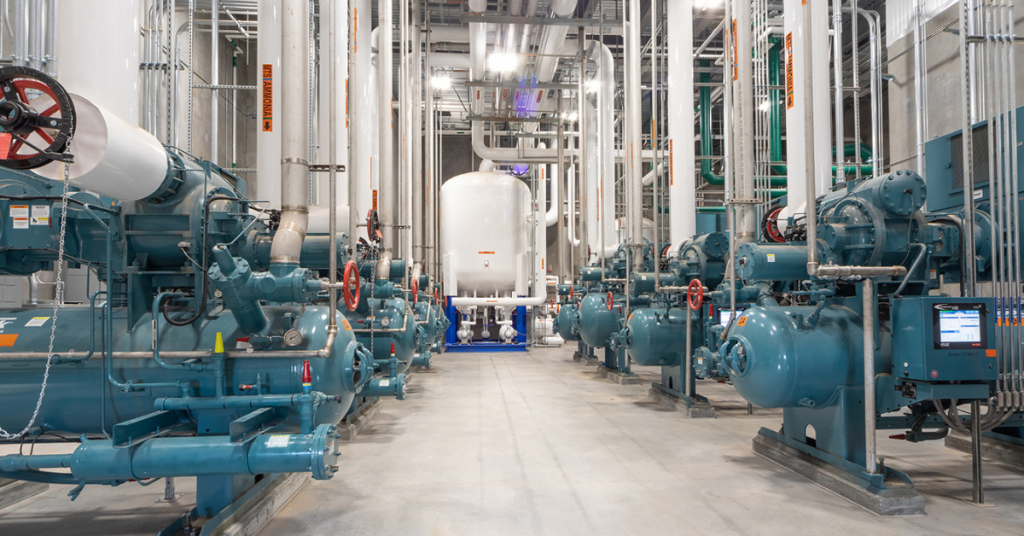Temperature control is vital in the food and beverage industry, where slight fluctuations can threaten product integrity and put consumer health at risk.
Preventive maintenance programs (PMPs) help ensure refrigeration equipment operates at peak performance, regardless of a system’s age or the refrigerant it uses.
Unfortunately, the repetitive nature of maintenance work can elevate the risk of complacency. This is extremely dangerous in the context of industrial refrigeration because even a single oversight can quickly become life-threatening.
Have you noticed your technician or contractor mindlessly checking boxes on inspection forms, failing to report daily or weekly anomalies in equipment run data, or generally failing to give your system their undivided professional attention? If so, I have bad news: you may be dealing with a pencil whipper, and you’ll want to address the issue sooner rather than later.
What is preventive maintenance?
Preventive maintenance is a proactive strategy used to detect and lessen the degradation of components and systems before they negatively impact equipment performance, cause compliance violations or result in catastrophic failure.
A PMP typically involves:
- Running equipment diagnostics
- Replacing worn-out parts
- Collecting measurements and analytics
- Maintaining historical documentation and reviewing operational insights
- Performing lubrication, tightening and other adjustments
Successful PMPs may save facilities an estimated 12–18% in costs over a reactive maintenance program.
Preventive maintenance programs are especially important for plants with ammonia and carbon dioxide (CO2) refrigeration systems. These refrigerants are widely used in large industrial applications due to benefits like efficiency and reduced environmental impact. However, they must be carefully monitored for hazardous leaks that can jeopardize personnel, operations, or worse, entire communities.
There is no one-size-fits-all approach to preventive maintenance, and each facility must develop a customized approach tailored to its specific needs. However, all PMP programs must meet or exceed industry compliance standards, Occupational Safety and Health Administration (OSHA) requirements and original equipment manufacturer (OEM) recommendations. First, define the type of program that will meet your comprehensive needs early on:
- Planned maintenance — Regular proactive failure management on run-time or lifetime of the machine or facility.
- Condition-based maintenance — Maintenance based on expert advice informed by measured values and performance indications.
In-house vs. contracted preventive maintenance services
Preventive maintenance can be performed by in-house maintenance personnel, a service contractor or both. Most often, facilities hire a refrigeration contractor to keep their refrigeration systems safe and operable. The reason is multifaceted.
First, the hiring and retention of qualified refrigeration technicians remain a challenge. The Bureau of Labor Statistics recently reported more than 40,100 job openings for technicians in the heating, air conditioning and refrigeration (HVACR) industry, with expectations that the need for skilled workers will continue growing.
Another reason is that the lack of skilled labor availability creates added risks in facilities, especially those with ammonia systems. Designing, installing and maintaining ammonia refrigeration systems is a serious business and should be conducted and maintained only by trained and competent personnel. Working with a refrigeration contractor helps ensure there is always a trained technician available to perform your PMP at the rate and frequency that works best for you.
Like your in-house personnel, a contractor can also get complacent with maintenance checks, however, which is why plant owners and operators need to practice due diligence when vetting and working with these professionals.
6 questions to ask yourself about your refrigeration contractor
The last thing you want is to hire a contractor who completes forms, records or documents without performing the implied work or provides recommendations without supporting data.
Know who you’re hiring and make sure you’re asking the right questions to current and potential partners, including:
1. Does the contractor understand the challenges your facility is facing?
Would you be happy with a doctor handing you a prescription before taking the time to understand your symptoms? Of course not! Similarly, your preventive maintenance partner should understand the current and future desired state of your system before making any recommendations.
Through consultation and candid conversations, you can define a mutually agreed upon set of activities and services to correct the challenges specific to your operations. Performance expectations should focus on results, not just activities.
2. How well does the contractor know your specific equipment?
Ensure your contractor is cataloging and categorizing your refrigeration assets by serial number, model and manufacturer catalog. Tracking the historical repairs and performance of individual pieces of equipment provides insight and data that expedites the preventive maintenance process. The data can also be used for predictive analysis to ensure maximum uptime and productivity for your facility. This is accomplished by comparing the information with OEM recommendations, key data points and historical failure points by equipment type.
3. How long do they take to perform your PMP?
A robust preventive maintenance program encompasses the small and large checks needed to ensure your equipment is performing as desired. Your contractor shouldn’t be flying through their checklist or merely glancing at the daily logs. That’s one of the biggest red flags to alert you that you’re working with a pencil whipper.
4. Do you have a vendor or a partner?
A partner will become an extension of a client’s business, as opposed to a vendor who merely supplies a product or a service. Making this distinction matters over time and impacts the quality of service you receive. A partner can assist you in developing solutions by contributing knowledge, expertise and resources as needed, rather than simply providing a contracted service.
A trusted partner is invested in your facility’s success and is willing to inform, train and share knowledge about equipment operation with your employees. The best way to transfer knowledge and develop skilled employees is by pairing them with your contractor to shadow the activities performed through the PMP.
5. What is their plan?
Ask your contractor about their systemic approach to facility safety, equipment operability, and monthly and quarterly feedback loops. You might ask:
- Does the maintenance agreement outline each maintenance task that must be performed?
- Do they maintain a detailed plan documenting their movements within your plant?
- What type of reporting do they provide?
- How do they use data and insights to benefit your operations?
Establish clear expectations for communication cadence with mutually agreed upon metrics and scorecard reviews. Use this time to review insight reporting regarding the health of your equipment, discuss repair recommendations and review your short- and long-term business outlook.
6. Is your contractor a full-service provider?
Vetting, managing and coordinating multiple providers can be expensive and time-consuming. Finding a contractor who provides a full suite of services is a great strategy for controlling costs, leveraging economies of scale and consolidating your maintenance dollars and resources.
A contractor with full-service capabilities will offer agile solutions for your refrigeration systems and serve as a one-stop solution for the diverse needs within a food manufacturing plant. Their catalog of services may include in-house design and engineering, process safety management, OEM and aftermarket parts inventory, and compressor services.
At Stellar, we aim for the highest standards of safety, quality and responsiveness. We approach each preventive maintenance program with a fresh set of eyes and use a documented methodology for providing the service. With more than 37 years of industry experience, our service teams have the technical expertise and hard-won knowledge to provide comprehensive solutions for your plant’s every need.
Want to learn more about how working with a full-service industrial refrigeration contractor can benefit your equipment and facility? Email us at foodforthought@stellar.net or give us a call at 800.488.2900.



